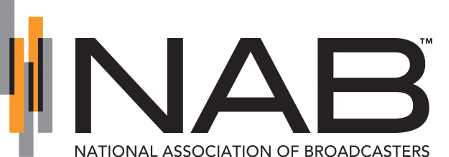NAB to Uncle Sam: Allow FM Reimbursement in TV Repack
WASHINGTON—Radio stations should not have to pay “out of pocket” just to stay in business as a result of the TV auction repack; the U.S. government’s repacking process should allow reimbursement to “bystander” FMs for costs they incur to maintain their service through the transition. So argues an NAB official.

The TV band is on Channels 2 to 51; the TV auction will shrink it Channels 2 to 36; as many as 1,000 TV stations will be relocated to a new channel. Now National Association of Broadcasters Vice President of Spectrum Policy Patrick McFadden has blogged about the potential impact on radio, a topic that has worried some in radio for the past year or two.
“Relocating television stations to new channels following the close of the TV broadcast spectrum incentive auction will be the most complex transition the Federal Communications Commission has ever overseen,” McFadden wrote. “We know that many stations will be repacked, we know that there are constraints on the resources available to perform this work, and we know there are hugely complex interference relationships between broadcast television stations But we don’t yet have a full picture as to which stations will be moving to new channels, and what the ramifications of those moves will be.”
He noted that many towers that are home to repacked TV stations also serve FM radio stations, which are not being repacked. “During the incentive auction rulemaking, NAB and others asked the commission to allow repacked television stations to reimburse other broadcasters, including FM stations located near repacked television stations, for costs those stations might incur during the repack,” he wrote.
“It seems reasonable to us that, if an FM station, an innocent bystander to the repack, needs to construct alternative facilities to stay on the air during repacking work performed on a nearby television station, this should be considered a reasonable expense associated with the repack. The FCC disagreed, citing the language of the legislation authorizing the incentive auction.”
McFadden said those FM stations and their millions of listeners are still there. “They still face the real possibility that repacking may disrupt their operations, even though they have literally nothing to do with the incentive auction. Work on nearby television antennas may require FM stations to reduce power, or seek alternate facilities. A repacking plan that does not take FM stations into consideration risks depriving listeners of local radio on which they rely.”
The answer, he wrote, is to coordinate repacking efforts to minimize disruption while reimbursing bystander stations for costs they incur to maintain service, “not to make them collateral damage.”
Get the TV Tech Newsletter
The professional video industry's #1 source for news, trends and product and tech information. Sign up below.
McFadden said TV stations already know confidentially about their new channel assignments, and that the information should be available publicly in April. “A balanced, reasonable repacking plan will treat all stakeholders fairly, including all affected broadcast stations, whether they are repacked or not.”
Expect to hear more about this. Congress allocated $1.75 billion to compensate TV stations that will be repacked into the smaller part of the spectrum. NAB believes that’s not enough money to cover all TV station costs. The association plans to seek a legislative “fix” that covers the moving costs for all TV stations forced to relocate, along with any costs that these “innocent radio station bystanders” may incur as part of this TV repack.
This story originally appeared on TVT's sister publication Radio World.
